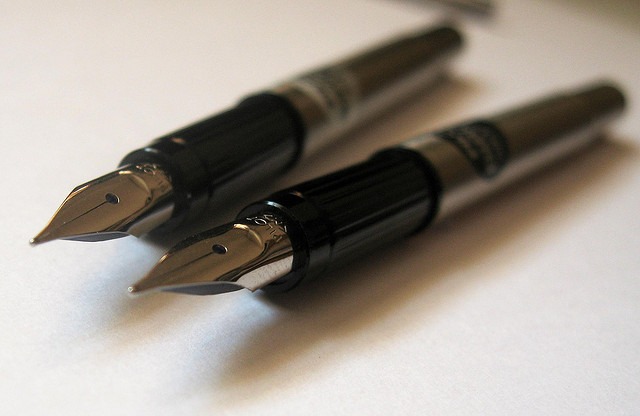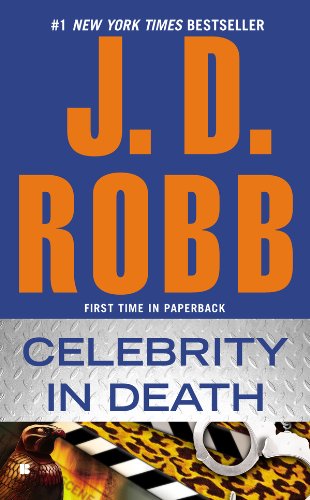In the past the use of a pseudonym (or pen name) has been common practice for many reasons. It’s been a particularly popular choice among authors who change genres, are concerned about their privacy, or want to mask their gender. While some authors have been known to make great use of pseudonyms, it’s all about when to use them, and when to not. In this age of digital abundance, it could be argued that pseudonyms offer little use to most authors. This is especially the case when authors choose to use a pseudonym for the wrong reasons….

If you are an emerging writer and you have ‘nothing to hide’, you probably don’t need to use a pseudonym. In fact opting to use one is likely to place more strain on yourself and your publisher, as it requires you to register the name for copyright purposes and requires consistent application of the name when you’re submitting works to publish. Editor and writer Moira Allen has some great information on the logistics of using a pseudonym that you can find on her site ‘Writing World‘. If you have found success as an author however, there are a few good reasons to adopt a pseudonym.
When a Pseudonym’s right for you
You need to keep your worlds separate
Do you need to keep your personal and professional lives separate? If you answered yes to this question, using a pseudonym could be a good idea. Privacy is a lot harder to maintain in the electronic world, but if you’re careful, it’s possible to hide your true identity from your readers. Separating your personal life from your work life can be particularly relevant for writers of certain genres. Are you an erotica writer that teaches primary school by day? Or do you work for a government department that won’t allow you to publish under your real name? These are the sorts of situations when you’re likely to benefit from using a pseudonym.
You’re switching genres
Once you’re an established writer you may decide you want to switch genres. Let’s say you’re a romance author who wants to mimic the style of authors like George R.R. Martin and explore the world of fantasy; it’s common practice to use a pseudonym in these situations. J.D. Robb is a good example of this. He managed to stay masked as a new science fiction writer for a staggering six years before coming out as Nora Roberts, a popular romance author. Even since her revelation Nora Roberts still publishes her sci-fi novels under J.D. Robb. Using a different names for different genres can keep your readers from getting confused and allows them to stick to the reading the genre they want.


When not to use a pseudonym
Sadly many authors make the mistake of using a pseudonym for the wrong reasons, or don’t acknowledge how difficult it is to juggle a pseudonym and your real name. An author on Mindy Klasky’s blog cited her difficulty with maintaining her pseudonyms:
I tried to juggle two pen names before I was published – one for erotic romance, one for mainstream. That meant I was three people in public. It was waaaaay too confusing for me; I never knew how to refer to myself at conferences. Fortunately, only the erotic romance took off, and I could drop the other pen name before people even really knew it existed.”
When you want reader’s to identify with you
People associate the name with the writing it accompanies, not the other way around. The truth of the matter is that people are more likely to identify with your work if they can identify with you as an author, readers like having that link between them and the person that wrote the book they’re obsessing over. Think about it, every time you read a book that you really love, the first thing you do is Google the author; you want to know who they are and what they do, more importantly you want to know if they have any other books that you can fall in love with. Next thing you know, you’re buying all their books and recommending them to all your friends. Writing anonymously can take away that link between reader and author.

You want to protect yourself legally
Another common mistake writers make is thinking using a pen name can protect them against defamation or writing about real people. This is definitely not the case. A pseudonym will never protect you against legal repercussions. Your pen name is a flimsy cover for what’s underneath; the exterior doesn’t change the interior. One way or another the people you write about will find out who you are and that’s bound to get messy. The only real way to avoid legal ramifications is to keep your subjects informed and always seek their permission.
***
Deciding whether or not you should use a pen name can be tricky, the best way to decide is to weigh up the pro’s and con’s that are relevant to you and your circumstances, and consider how using a pseudonym could benefit you.
One response to “Is A Pseudonym Right For You?”
All well and good for April Davis who has never suffered from ‘alphabetical list fatigue elimination’.
Having both names in the first 5 letters of an alphabet means that she is near the top of any alphabetically sorted list.. So will often be the ‘best so far’. When you get round to being ‘Zeb Young’ and at the bottom end either the reader will have taken something earlier or have filled the 10 spaces on the short list and it needs to be special to knock an existing one off the list or the reader will have got bored around about the ‘F’s.
Hence I became Ted (real name) Bun (pseudo name) so I am nearer the beginning of the surname list (and the reverse sorted forename list too!)